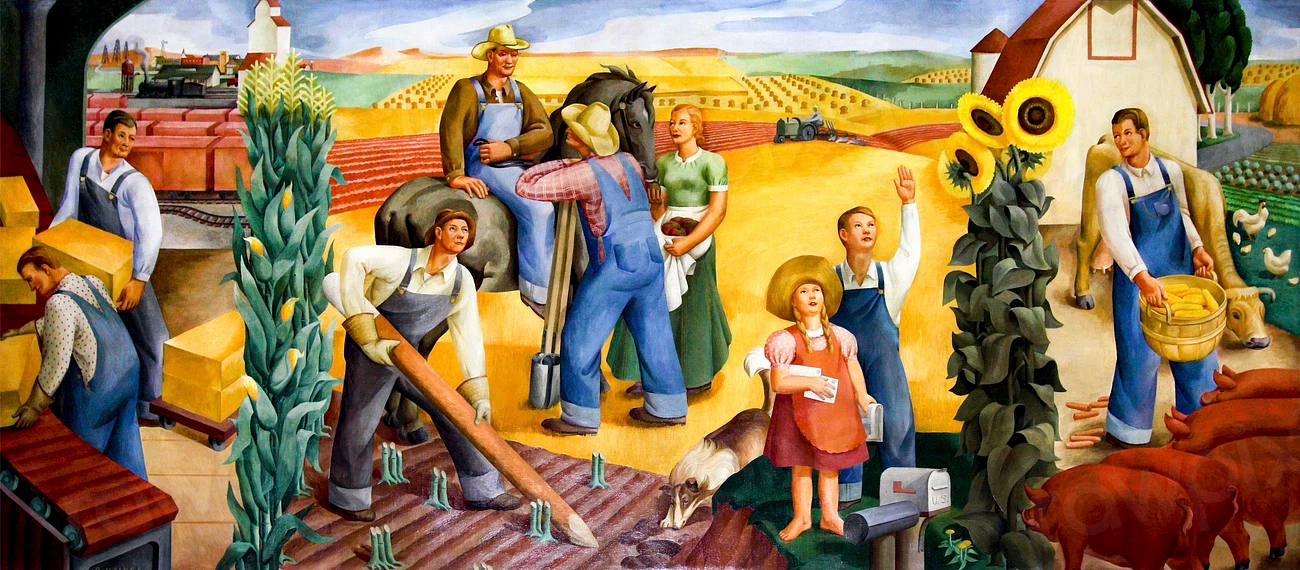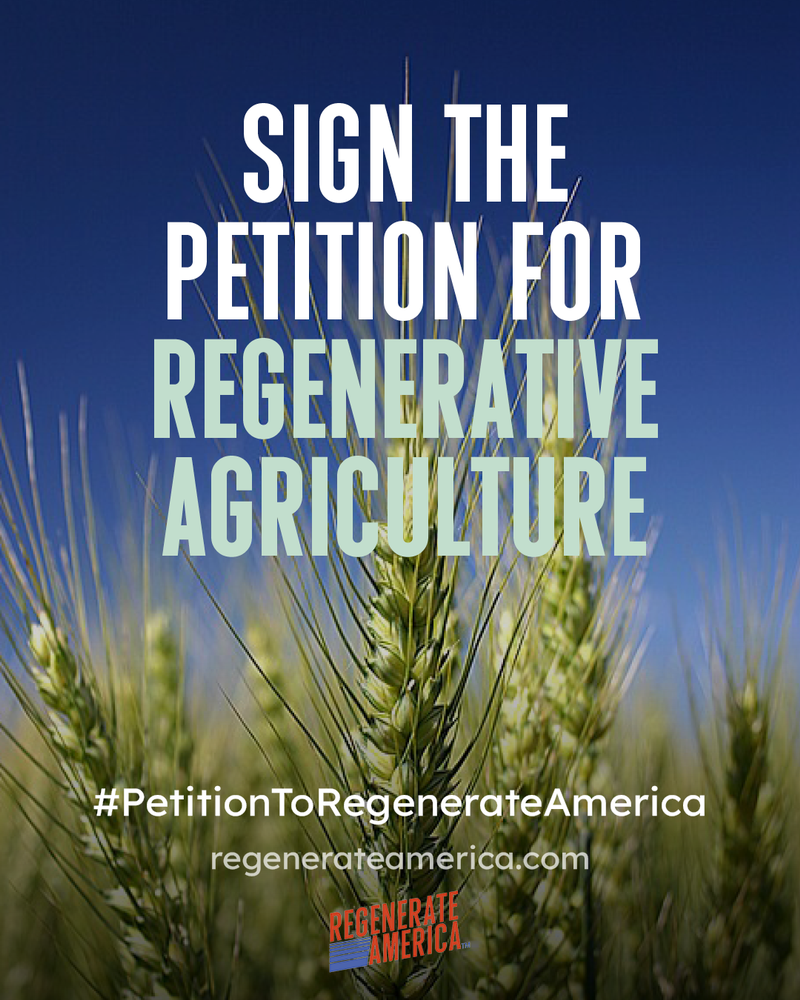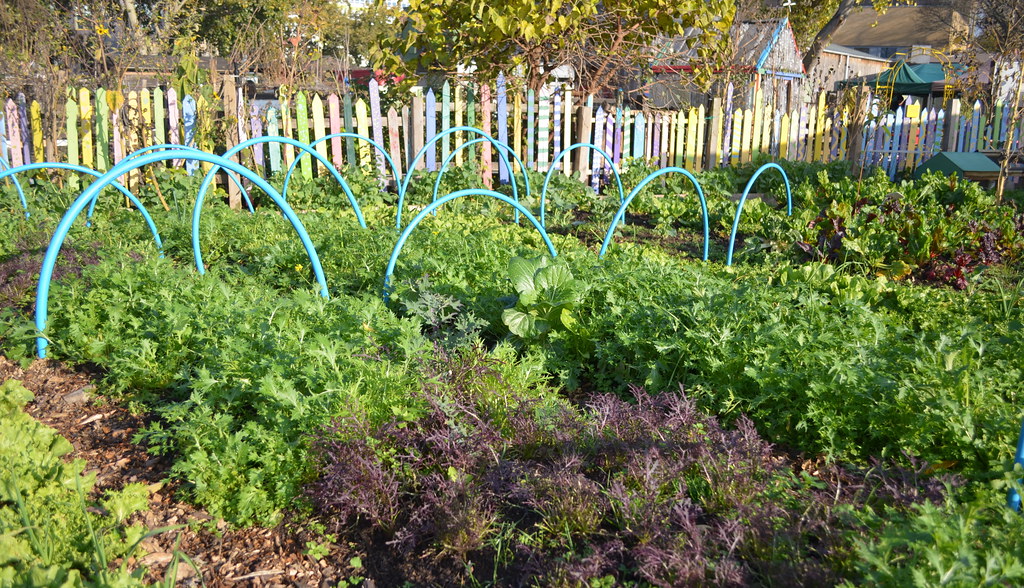Regenerative Agriculture

Regenerative Agriculture is a new program launching in 2023. Join us and be a Regenevore! The wisdom of working with the Earth is circling back around and empowering us to deeply shift the way we farm, feed ourselves, and take care of our ecosystem. Remember Ecology 101? That’s Regen Ag, and it includes community gardens, backyard gardens, city-wide landscapes, parks, and more.
We think California can be carbon neutral with compost applications on the rangelands and farms in California. That’s a bold statement. Learn more by joining the Regen Ag program, and spread the word. Let’s see this happen!
We invite you to learn more and do more with supporting the exciting practices of Regenerative Ag.
Where to Start?

THE BASICS OF REGENERATIVE AGRICULTURE:
- No more pesticides or herbicides
- No more tilling
- No bare soil- cover crop!
- Integrate animals into the farm again
- Integrated polyculture farms
Regen Ag and The Farm Bill Campaign
The current Regen Ag program is launching a campaign focused on the upcoming Farm Bill 2023, which will be voted on by September 30th 2023. Partnering with 350BA legislative committee, the campaign will inform all constituents of the moments needed to put pressure on our legislators to pass particular aspects of the Farm Bill.
In creating a campaign to focus on the Farm Bill, it is 350Marin’s hope that practices which destroy the soil do not continue to be subsidized and supported by our government.

This is an exciting time! Join us!

What do we need?
- We need a few good writers to reach out and connect online and by phone to the relevant constituents locally to ensure they are focusing on the important parts of the Farm Bill and can call their legislators when the time is right.
- We need good communicators to talk to the farmers at the Marin Farmers’ Market about the Farm Bill
- We need an Instagram manager who can use this social media platform to echo the urgency of the moment about the Farm Bill
- We need a great graphics artist to make beautiful graphics for our website and newsletter about Regen Ag, our coalition of farmers and advocates, and the wonders of the soil.
Do these roles feel like they can be filled by you? Contact us by email at info@350marin.org.
What is the Farm Bill?
The Farm Bill is an omnibus bill (meaning it covers many different areas of legislation) that governs much of the US food and agriculture system. With provisions for nutrition, crop insurance, conservation, rural investment, land access and more, the Farm Bill is one of the most important pieces of US legislation, and has considerable ramifications for farmer livelihoods, the environment, and national food security and access. Renewed every 5-7 years, the 2023 Farm Bill will last through at least 2028.
The Farm Bill is developed and written by the Senate and House Agriculture Committees, and is voted upon by both Chambers of Congress. However, all members of Congress vote to pass the Farm Bill, and they all have the opportunity to influence the development of the Farm Bill by signaling their support for key issues through marker bills.
How does the Farm Bill impact farmers?
The Farm Bill impacts nearly every aspect of farmers’ lives and work, influencing what they produce, in what quantities, and the practices that they are able to implement on their lands.
The Farm Bill sets the priorities of the U.S. agriculture system, often encouraging certain crops and production systems over others – for example, after Nutrition, the Crop Insurance and Commodities titles receive the next largest amounts of funding. Soil health-focused programs that help rebuild soils currently receive less than 1% of overall funding in the Farm Bill, which means that regenerative agriculture systems are currently not supported to the same extent that conventional agriculture is. In turn, the farmers and ranchers that are making the effort to build healthy soils are not supported in their work, and in fact can be discouraged from it.
How does the Farm Bill impact consumers?
The Farm Bill affects our entire food system–from how food is grown, what types of food is available, and who has access to it. For example, the current Farm Bill subsidized commodity crops like corn and wheat which are often used in heavily processed food, while fruits and vegetable production does not receive subsidies–making produce comparatively more expensive than processed foods. But the Farm Bill also helps 42 million Americans put food on the table through the Supplemental Nutrition Assistance Program (SNAP), providing essential nutrition to families in need. In fact, over 75% of all Farm Bill funding goes toward SNAP and other critical nutrition programs like WIC.
What is 350Marin doing?
By applying pressure to key leverage points within the agriculture system – education, infrastructure, and crop insurance, to name a few – we can create a system that works for farmers of all scales, but that rewards those that are doing better for the planet, the land, and the people.
